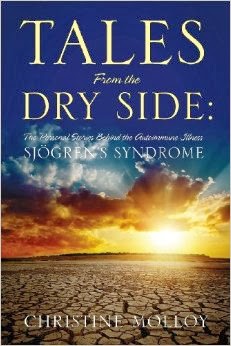What would you do if you had an opportunity to learn a piece of medical information about yourself that years ago, was not even an option? What if that information told you that in your lifetime, you had a high likelihood, or even a possibility, or having a certain type(s) of cancer? And finally, what if knowing that information required that you make life-altering decisions about what to physically do with your body?
This is the case for many women who are faced with the question of whether or not to undergo BRCA testing. The BRCA 1 and BRCA 2 genes are genes that we are all born with. If there is a mutation in either one of these genes, it indicates a condition called Hereditary Breast and Ovarian Cancer (HBOC) syndrome. This is a condition that is genetic and is acquired through birth, when the mutation is passed down from either parent; it does NOT have to come from the mother. If a person tests positive for this mutation, it substantially increases their risk for breast cancer, ovarian cancer, and in certain families, pancreatic cancer. Males with the mutation are at a higher risk for male breast cancer and prostate cancer.
Now, only about 5-10% of cancers are genetically related, however I have a mother who was diagnosed with Stage 2 ovarian cancer at age 44 and then breast cancer at age 62. She had an aunt who had breast cancer. Genetically related cancers tend to be diagnosed at a younger age, under the age of 50. We know that mammograms and self breast exams are very useful in detecting breast cancer, but ovarian cancer has been called the “silent killer” because it often does not produce symptoms until the disease has progressed. My mother was lucky; she went to her annual exam, was found to have what was thought to be problematic fibroids, and subsequently underwent surgery for those fibroids.
Except, they were not fibroids. They were tumors. She proceeded to have a total hysterectomy at the age of 44. She survived that, with surgery and chemotherapy, and then also survived her breast cancer diagnosis, which was treated with a lumpectomy and radiation.
When I was in my late 20’s, my oncologist (I had Hodgkin’s Lymphoma when I was 24) suggested genetic testing/counseling for the BRCA gene. I went to the counseling, had the crap scared out of me, and decided not to have the testing at the time. I didn’t want to know that kind of information (the statistics for BRCA positive women are staggering), and I knew that if I tested positive, I would not have the recommended surgery because I wanted to have children. The recommended surgery for BRCA positive women is to have the ovaries removed. Total mastectomy for the breasts. The option to surgery is increased surveillance of the breast with mammograms and MRI’s every six months. For the ovaries, there is no proven detection method, although sometimes a blood test and ultrasound can help.
Down the road, I was in my late 30’s when my mom was diagnosed with breast cancer. I clearly remember her oncologist looking me straight in the eye and telling me I should have the BRCA testing done because of my risk. It still was not the right time.
Now I am 43 years old. And this risk for ovarian cancer thing has been weighing heavy on my mind since last year, probably because I am almost at the age my mom was when she was diagnosed. Actually, it has been on my mind since that first genetic counseling appointment all those years ago. Although I have been getting regular mammograms for quite some time now, due to my chest radiation history because of the Hodgkin’s, there is no reliable testing for ovarian cancer, with the CA-125 blood test and transvaginal ultrasounds being hit or miss at best.
So all of this brought me to my regular gynecologist who then referred me to a local oncologist and finally an appointment was set up with a genetic counselor from Massachusetts General Hospital (MGH). My oncologist is located at Cooley Dickinson Hospital in Northampton, MA, which is a small community hospital, and they are affiliated with MGH, which has a comprehensive genetic program. I had to wait months for the appointment and then I got an unexpected call two weeks ago that there was a cancellation last week, which moved my appointment up by a full month. I took it.
My husband went with me to the appointment last Thursday and we met with my genetic counselor, Michelle. She was absolutely fantastic. She took a detailed family history and confirmed that yes, having BRCA testing done was indicated. What I didn’t expect her to say was that there were other genes I should probably consider testing for as well, including the p53 gene and the p16 gene. Folks, I will be honest. I am a nurse and I didn’t even know there WERE other genes! The p53 gene was because of the history of leukemia/lymphoma in my family. I have already had lymphoma, but I would know if I was then also susceptible to sarcoma, breast cancer, brain tumors, and about six other cancers.
The p16 gene was suggested because my dad has had melanoma and my uncle (his brother) died of pancreatic cancer, both of which can be correlated to this gene mutation. Here’s the problem though, if you find out you DO have these other two genes, there’s not much you can do about it, except that you are aware of it and your doctors can be more alert to changes with you. Some doctors will suggest routine endoscopic ultrasounds and MRI’s for the pancreatic cancer and skin checks by a dermatologist for melanoma, but it’s not like you can remove your pancreas or anything. These two tests would be included in what is called a multi-gene cancer panel, which tests for all the genes known to have a cancer connection.
Cost: $5000
And my insurance, Medicare, does not cover ANY genetic testing for me because it is considered preventative.
Michelle also told us that this gene testing list is constantly changing as new genes are being discovered. She did not seem to feel that the risk for me with all these other genes was high. I did not feel that at this time, it was information I wanted. Yes, I wanted to know my BRCA status, mostly because of the higher risk, but also because I can concretely do something about if it comes back positive. She also told me I didn’t have to decide that day; the option would always be there if I changed my mind. On that day, it was too much, both emotionally and financially, and I opted out.
The good news is, there used to only be one lab that ran these BRCA tests, Myriad. Michelle told us that they no longer are the sole owners of the patent, and that other labs are now doing the testing as well. The cost for us, as it would not be covered by my insurance, would be $2500. However because these labs are now in competition with each other and want your business, they will oftentimes run it for free for a person if not covered by insurance, minus $100. That decision will be made probably within the next week. They will start running the test, and if for some reason are not going to cover the cost, they are mandated to call me and ask me if I want them to continue running the test (which we have decided will happen) as a self-pay, or stop the test. If they are NOT going to cover it and do not notify me by phone, they must pay the cost of the test. Michelle felt that most likely, it would be covered, so now we wait to see if the phone rings…
While talking with Michelle, I almost changed my mind even about the BRCA testing. It is quite a complicated thing, this BRCA business. For example, for her own personal reasons, my mother has decided NOT to get tested, so we don’t know her status. If I end up being positive, it looks likely that is came from that side of the family because of her cancers, but we don’t know for certain. If I come back negative, it doesn’t mean our family does not have the BRCA gene, because I could have gotten lucky and been in the 50% that don’t inherit it.
Here’s the part that almost changed my mind: If I come back positive, it means that we now know BRCA runs in our family. This means that my parents, brother, aunts, uncles, and cousins on the side of the family it came from, ALL have a 50% chance of inheriting this faulty gene.
When this dawned on me, I clarified this with Michelle, looked at Chuck, and we both realized the same thing, at the same moment: my getting BRCA testing with a positive result would mean that all my family members would have this knowledge, whether they wanted it or not.
I have to say, that was one of the worst feelings in the world, ever. And of course, I started to cry.
This is the type of thing that can really mess with your head.
As we talked more with Michelle, I began to realize that this is not my fault. It is not my mother’s fault. It is not her parent”s fault. It is NOBODY’S fault! This gene has been around forever, literally. Yes, now we have the technology to know these things and be more proactive which raises up the question of how much knowledge is too much?
I came to the conclusion during this appointment that for me, I need to have this BRCA information, not just on an emotional level, but for the sake of my survival. It is not very common for a woman, like my mother, to get ovarian AND breast cancer in her lifetime, especially at a younger age. The general population has approximately a 1-2% risk of getting ovarian cancer in their lifetime. A person who is BRCA positive has up to a 60% chance of ovarian cancer…a cancer that is typically detected AFTER it is too late. The general population has approximately a 10% chance of breast cancer in their lifetime. My previous radiation history already increases that risk. A woman who is BRCA positive has up to an 87% risk. Those are numbers that I cannot ignore, especially after having already faced cancer once in my lifetime.
The questions that BRCA presents are complicated and messy with no right or wrong answers. The only answers are the ones that are right for the individual, at that particular time in their life. So the best we can do, is get educated, make informed decisions, and pray for the best outcome.

